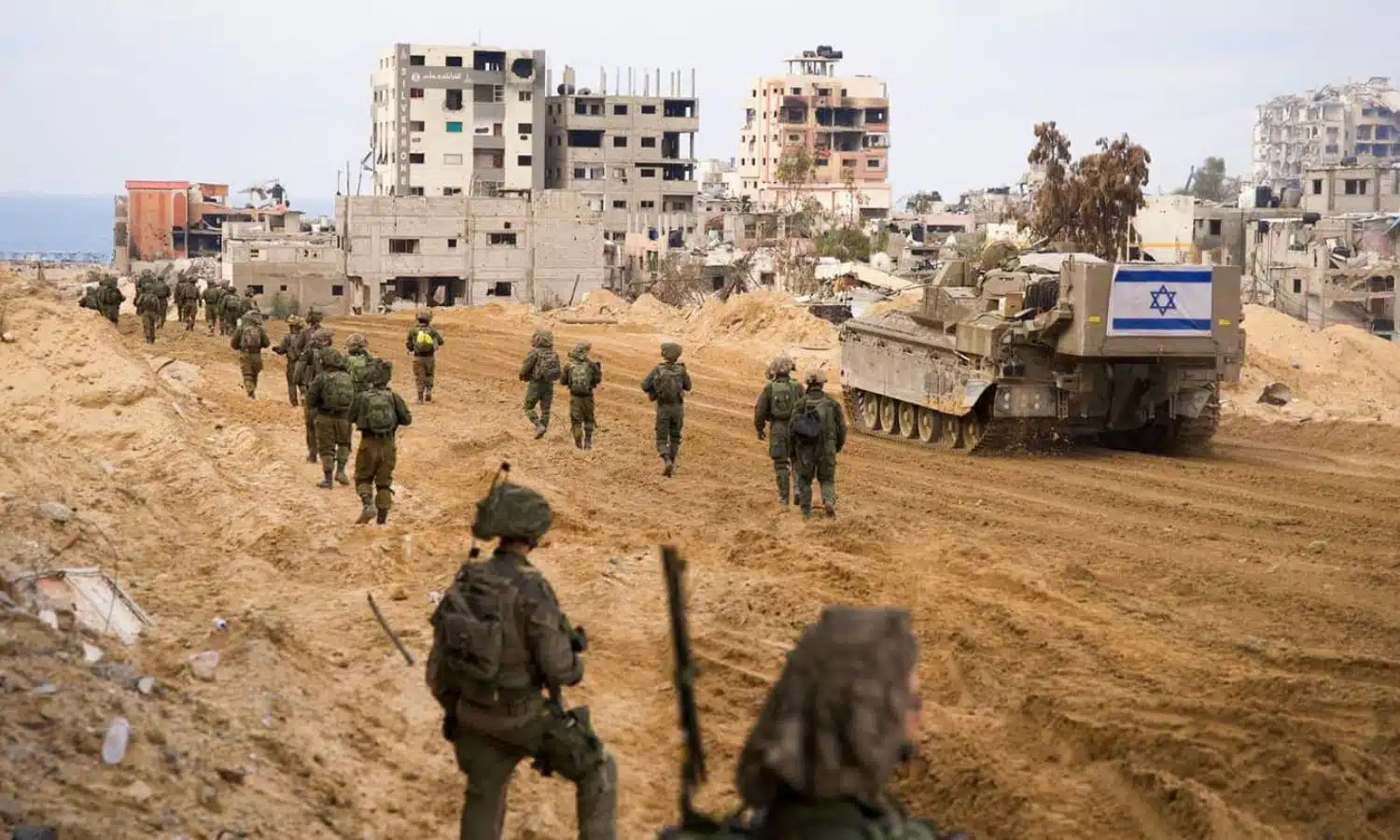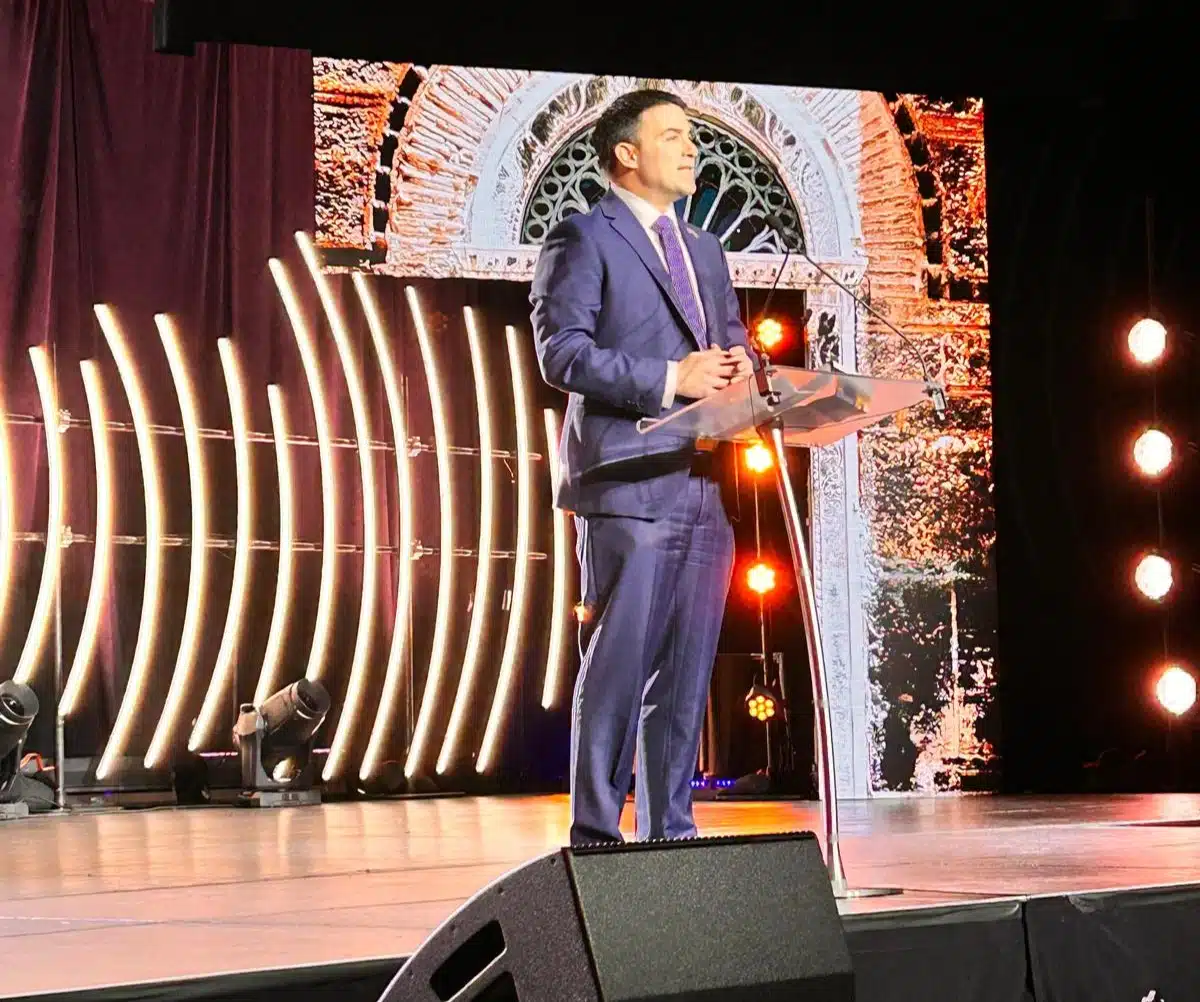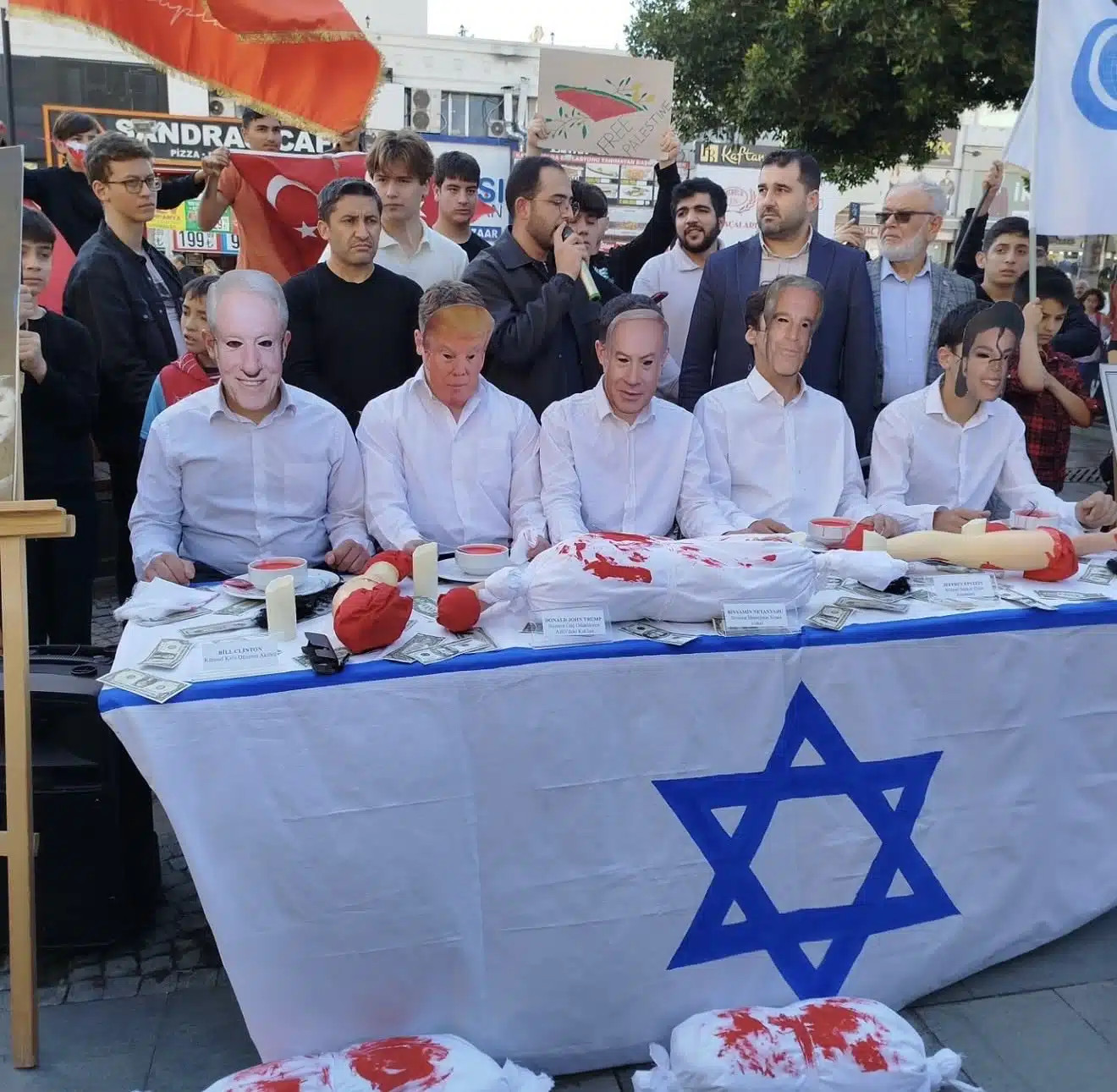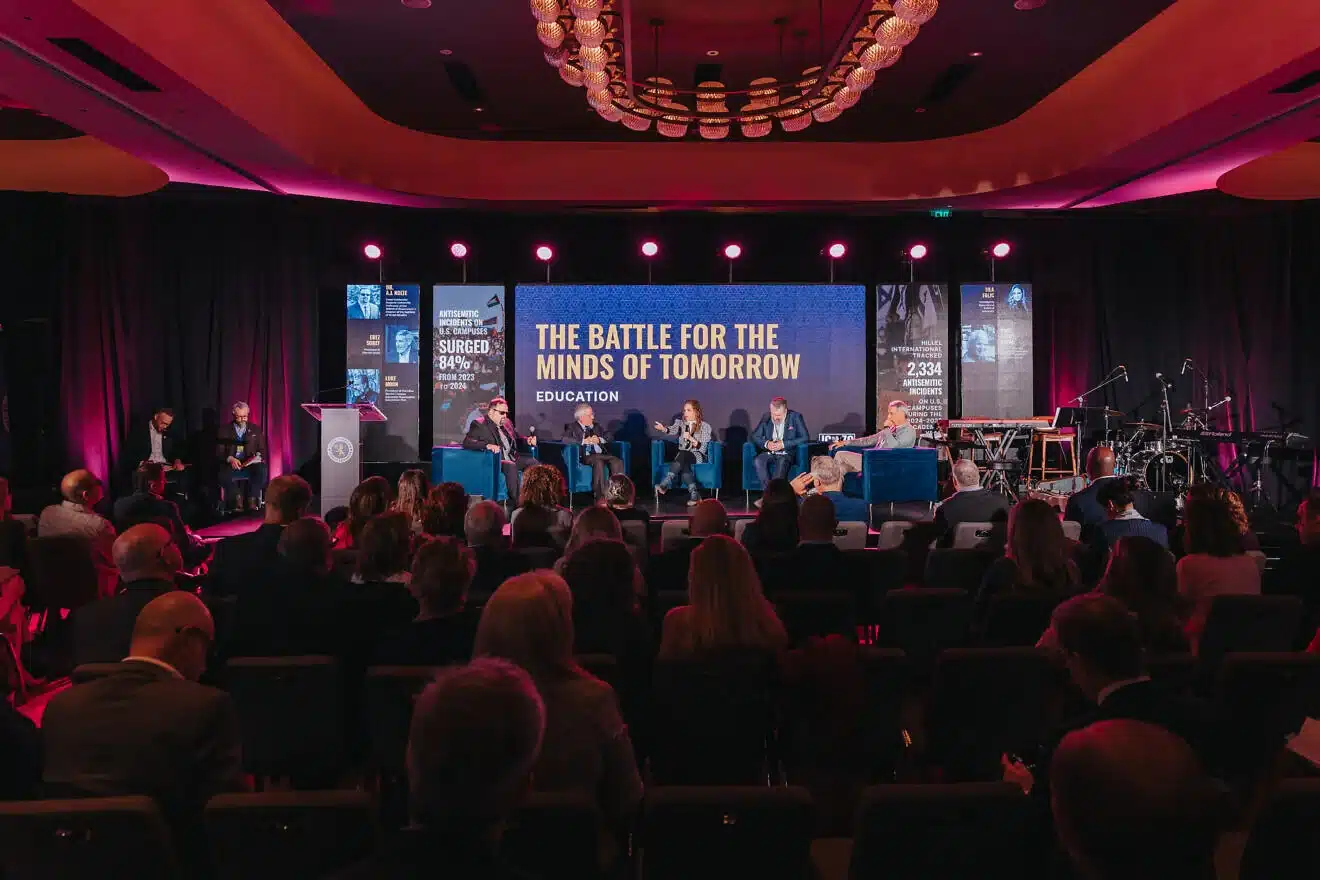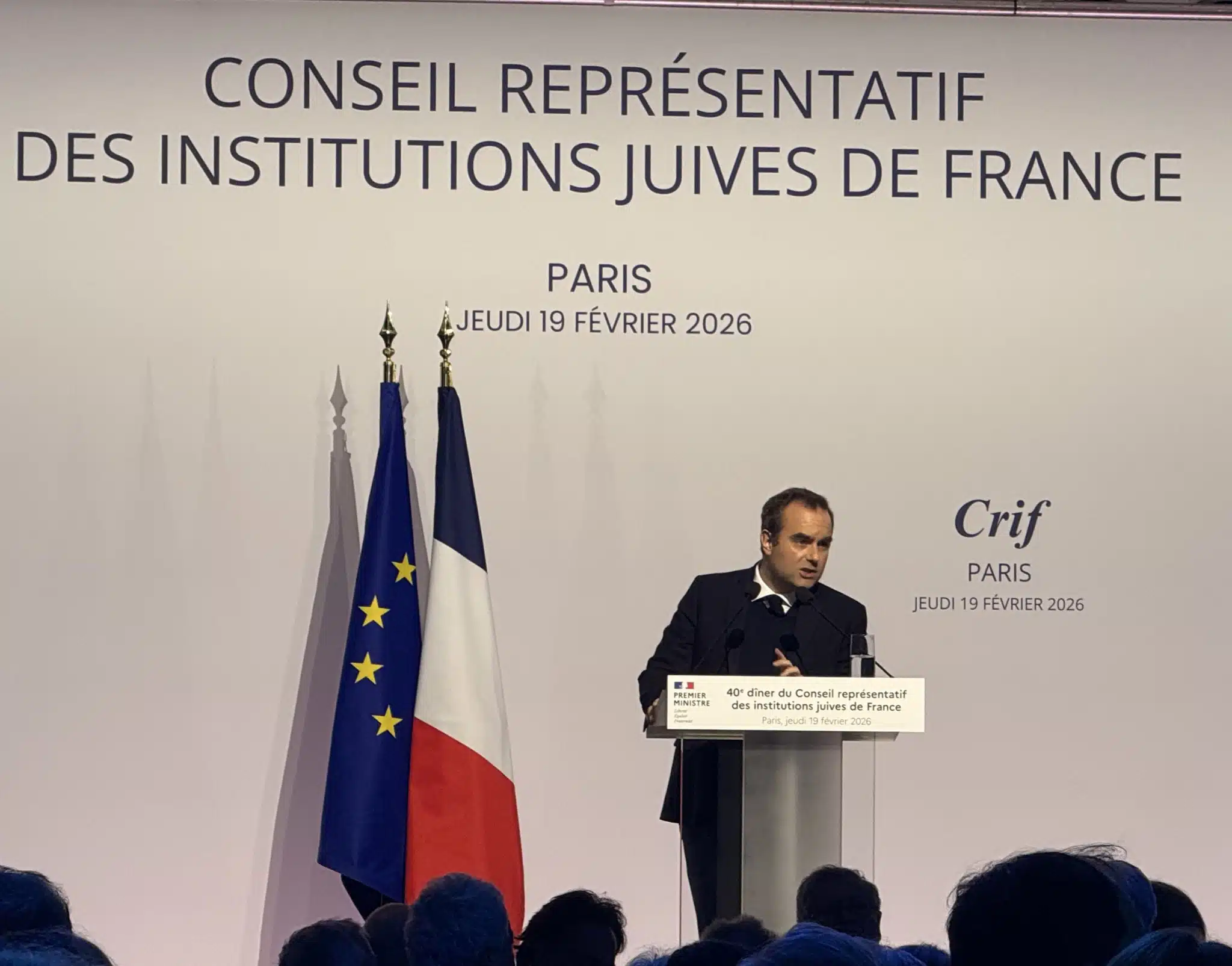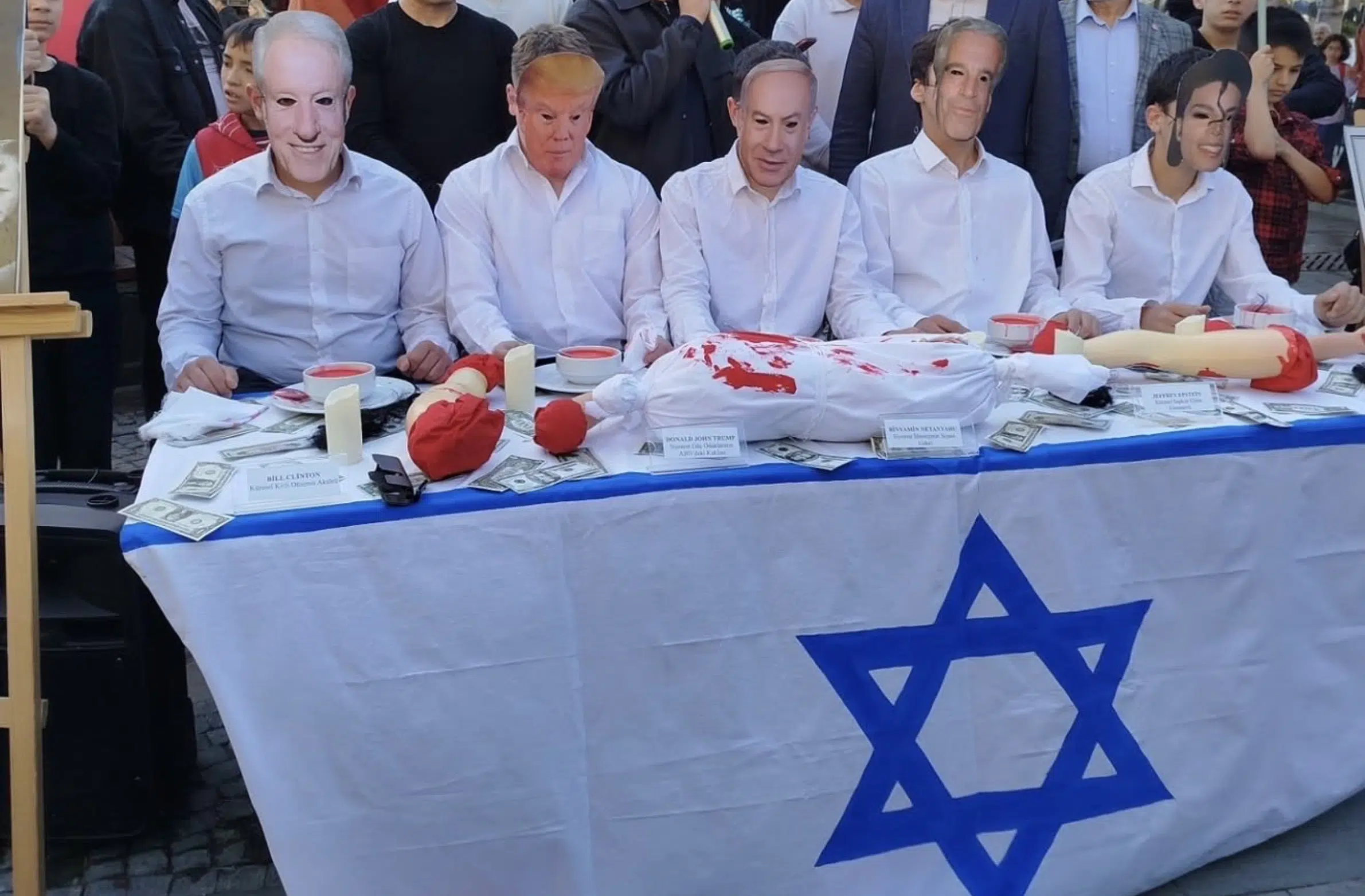|
Getting your Trinity Audio player ready...
|
In an online security briefing hosted by the Combat Antisemitism Movement (CAM) on Wednesday, Dr. Michael Barak, Head of the Global Jihad & Palestinian Desks at the International Institute for Counter-Terrorism (ICT), and Olga Deutsch, Vice President of NGO Monitor, provided an in-depth analysis of Israel’s ongoing security challenges, 18 months after the October 7th Hamas massacre, from guerrilla warfare in Gaza to international lawfare campaigns.
The forum was moderated by CAM Director of Hispanic Affairs Shay Salamon.
Watch a full recording of the briefing HERE:
Hamas’ Guerrilla and Psychological Warfare
Dr. Barak explained that Hamas continues to operate with guerrilla-style tactics in Gaza, including planting explosive devices and recruiting young people into its ranks. But beyond the battlefield, Hamas has also invested heavily in psychological warfare.
“Hamas is conducting psychological warfare — particularly regarding the abducted Israelis — to portray a victory image and create a rift inside Israeli society,” said Barak. This includes deliberate efforts to spark public debate over whether to continue the war and to weaken morale. He noted that Hamas had long strategized around hostage-taking as a means of destabilizing Israel: “In order to break and destroy Israeli society, Hamas needs to abduct Israeli civilians or soldiers.”
Disinformation and Cognitive Warfare
In parallel, Hamas has launched a cognitive warfare campaign aimed at mobilizing Palestinians in Judea and Samaria. Through social media and other channels, it spreads conspiracy theories accusing Israel of genocide and of planning to destroy the Al-Aqsa Mosque, designed to inflame tensions.
Looting Humanitarian Aid and Undermining Relief Efforts
Barak noted that Hamas has looted and diverted humanitarian aid intended for Gaza’s civilians.
“Leading Israeli newspapers exposed that there was coordination between Hamas and the UN in smuggling cigarettes, food, and other products to Gaza,” he said, explaining that the goods were stored in warehouses controlled by Hamas members.
He also described Hamas’s propaganda against aid organizations, such as its false claims that Israel uses platforms such as the Gaza Humanitarian Foundation to commit massacres. “This is part of the psychological warfare of Hamas,” Barak emphasized.
Resistance to Hamas from Within Gaza
In a surprising development, the Abu Shabab clan in eastern Rafah — part of the Tarabin tribe — has taken up arms against Hamas.
“They are the first Palestinian group that is fighting also against Hamas,” said Barak.
The clan has declared a Hamas-free zone, offering refuge to Gazans fleeing Hamas control. However, Barak warned that the situation remained fragile. Hamas has sought to assassinate Abu Shabab members, while the broader Tarabin tribe has publicly disavowed the clan.
“It’s too early to determine if this will be a success,” Barak said. “I don’t think it will survive for the long term.”
Al-Qaeda’s Presence in Gaza
Barak also highlighted the presence of global jihadist actors in Gaza.
“There are also al-Qaeda and ISIS [operatives],” he said, noting that Israel had recently eliminated Nabil Ben Razi, a Salafi-jihadi ideologue with links to al-Qaeda in the Islamic Maghreb and the Taliban.
Ben Razi was known to publish content in Sumud, the Taliban’s official magazine.
Judea and Samaria: A Multi-Actor Conflict Zone
Judea and Samaria remains a high-priority front for both Hamas and Iran. Citing Iranian Ayatollah Ali Khamenei, Barak explained that while Gaza serves as a base for jihad, Judea and Samaria is viewed as “the main platform in order to conduct terrorist attacks against Israeli cities.”
- Palestinian Islamic Jihad (PIJ) has established eight battalions — called Katiba — in cities including Jenin, Tulkarm, Tubas, and Nablus.
- Independent youth cells have emerged, driven by disillusionment with the Palestinian Authority. Though unaffiliated with major factions, many receive weapons from PIJ.
- The Popular Front for the Liberation of Palestine (PFLP) remains active in Judea and Samaria. Its deputy leader, Jamil Mazza, publicly called for resistance against the “Zionist entity” and its Western allies, declaring a long-term goal of Israel’s destruction.
- Iran plays a central role in escalating the conflict. “Iran is also playing a major role in trying to escalate the security situation in the West Bank,” he said.
- Many Hamas operatives released in recent hostage deals have returned to Judea and Samaria with renewed motivation to carry out attacks.
Hamas Abroad: Entrenched Networks in Turkey, Lebanon, and Syria
Barak underscored the significance of Hamas’s external infrastructure:
- In Turkey and Lebanon, Hamas members are actively working to incite violence in the Judea and Samaria.
- Zar Jabarin, deputy to slain Hamas leader Salah al-Arouri, now operates from Turkey, alongside other Hamas figures, using the Muslim Brotherhood network to advance their efforts.
- Syria remains a potential threat. Barak warned that Hamas may be rebuilding infrastructure there: “The international community should monitor developments in Syria to see that Hamas is not using it as a platform to challenge Israeli security.”
Political Warfare, Lawfare, and Psychological Manipulation
Deutsch emphasized that alongside Hamas’ military operations, a coordinated political and psychological war is being waged against Israel on the global stage — primarily through NGOs affiliated with terror organizations.
According to Deutsch, this war is fought not with rockets, but with lawsuits, propaganda, and public pressure campaigns aimed at delegitimizing Israel and eroding its right to self-defense. She explained that terror-linked organizations have effectively co-opted the language of human rights to gain legitimacy in mainstream international circles.
These NGOs, often portraying themselves as defenders of human rights, partner with major global entities such as Human Rights Watch, Amnesty International, and Oxfam. They file petitions to the International Criminal Court (ICC) and the International Court of Justice (ICJ) — amplifying false claims of genocide, starvation, and apartheid.
“When South Africa files a lawsuit accusing Israel of genocide, it’s an extension of a campaign born on October 8th, spearheaded by Palestinian so‑called human rights organizations,” Deutsch said.
Deutsch emphasized that this effort began immediately after October 7, with dozens of Palestinian groups quickly mobilizing to launch a coordinated legal, media, and diplomatic assault on Israel. This initiative, she said, was not aimed at justice but at isolating Israel and undermining “the legitimacy of the IDF and the mere fact that Israel has a right to defend itself.”
Weaponization of Civil Society
Deutsch revealed that many of these groups are not grassroots NGOs, but are fronts for designated terror organizations like Hamas and the PFLP. Their tactics include:
- Mimicking military acts in public spaces: In Belgium, demonstrators reenacted the taking of hostages from October 7, complete with fake weapons and violent music.
- Campus coordination: In North America, these groups have worked closely with anti-Israel student organizations to organize encampments, disrupt Jewish life on campus, and romanticize terrorism.
- Transnational networks: One of the most active groups is Samidoun, a PFLP affiliate with chapters in Europe, North America, and even Tehran. Deutsch explained that these networks function as a “joint warfare room”–coordinating protests, legal action, lobbying campaigns, and media narratives.
The Hidden Face of Humanitarian Aid
Deutsch also shed light on the weaponization of humanitarian aid budgets. While most people associate aid with food, tents, or medicine, she explained that approximately one-third of humanitarian aid is actually directed toward legal and advocacy projects. These include:
- Lobbying the UN Human Rights Council and the ICC
- Funding legal teams to submit lawsuits against Israeli officials
- Mobilizing protests and political pressure campaigns
“Very few people know,” she said, “that when we talk about humanitarian aid, we should not think only in terms of physical aid.”
Much of it, she pointed out, was directed toward sustaining the very campaigns that fuel international pressure and isolation of Israel.
Antisemitism: A Global Weapon
Concluding her remarks, Deutsch drew a direct connection between this global lawfare and the unprecedented rise in antisemitism since October 7. Citing an Israeli government report, she highlighted a 340% spike in antisemitic incidents globally — with 70% tied to Israel-related content.
This, she argued, reflects a deliberate effort to normalize antisemitism under the guise of anti-Zionism. The legal, academic, and cultural attacks on Israel are not isolated — they are part of a broader strategy to marginalize Jewish identity and vilify the Jewish state.
“We find ourselves in a situation where there is confluence and collaboration between Palestinian so‑called human rights organizations and global names, with all working together to make Israel illegitimate and to make Jews unsafe,” she said.

